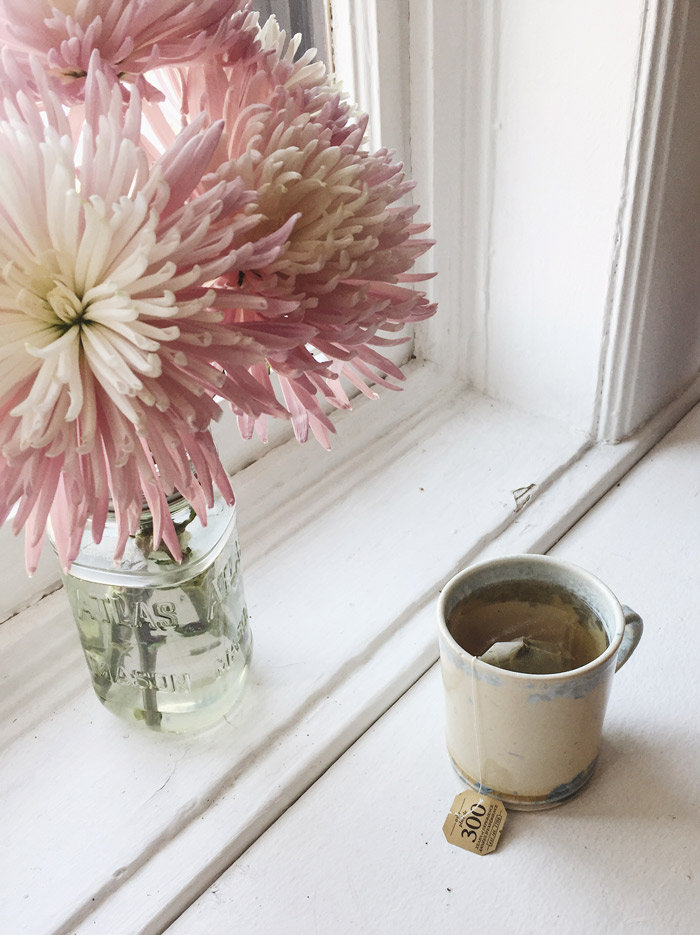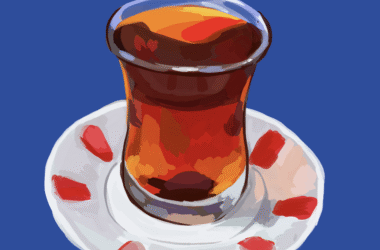Over the past few years, out-of-home tea consumption has risen, according to tea company Tetley’s 2016 annual report. Younger generations are turning to tea at growing rates, and the drink has had an increasingly strong presence in cafes and shops on and around McGill’s campus. With the rise of the ‘natural’ and health-conscious trend, this newfound popular preference for tea isn’t all that surprising. Tea is having its moment, and it’s time to take notice of the cozy drink. Drinking tea not only makes a brisk fall day extra snug, but most teas also have a variety of health benefits, making the drink ideal for students–especially those for whom health takes a backseat to studying once midterms hit.
While adamant coffee drinkers–or any student cramming last-minute–may turn their nose up at tea, many varieties of tea provide comparable amounts of caffeine to coffee, while skipping out on the negative side effects, such as restlessness and irritability. Just two cups of tea can supply the same quantity of caffeine as one cup of coffee, and most teas give the drinker a calmer boost of energy. This is in part due to the presence of the chemical theanine in teas; the anti-stimulant helps with focus and relaxation, unlike coffee’s classic crash-and-burn game.
Many teas also have healing benefits. Ginger teas and peppermint teas can help fight off the flu, while echinacea tea and black teas are valued for their medicinal properties in some parts of the world—though many companies in North America and Europe may overstate this as a marketing tactic. Some teas, however, come with obvious benefits: Green tea has been dubbed ‘‘the healthiest drink in the world,’’ because of its ability to lower the risk of cancer and kill bacteria—the Chinese knew of herbal tea’s benefits as early as 3000 BC.
Historically, tea has served many purposes, including acting as a catalyst for social activity. In the 1800s, elites in England gathered regularly to chat over tea and light bites, a practice they called high tea. This concept is still popular in current cafe culture around the world, including in Montreal, where third wave cafes are a central part of the local culture and economy. A favourite pastime of many McGill students is meeting up at one of Montreal’s many cafes. Cramming sessions at coffee shops reflect the continuation of the antiquated tradition in which tea is at the centre of a social activity–it’s common to see McGill students get together and nurse a cup of tea as they pour over their notes and absorb complimentary WiFi.
To satisfy tea cravings between lectures, McGill offers multiple spots for a fix of tea around campus, with several cafeterias and cafes to choose from, such as those of Royal Victoria College and Bishop Mountain Hall. To explore tea beyond the cafeterias, check out one of the alternative tea vendors on campus; try the mint tea–or even a chai tea latte—at Dispatch Cafe in the McConnell Engineering Building or the Second Cup in Stewart Biology.
In terms of off-campus options, CHAÏ tea lounge on Avenue du Parc is at the top of the list. With over 20 varieties of black tea to choose from, CHAÏ offers almost every type of tea in the book. For a more serene and gadget-free cafe, Camellia Sinesis Tea House in Montreal’s Latin Quarter makes for a great choice. It’s a quiet escape from the laptop life of McGill, and the tea choices are expansive. To buy tea and take it home, try David’s Tea. The famous tea chain started in Montreal, and the choices are limitless.
Whether students prefer a cafe setting or a comfy blanket and couch, tea provides an experience of familiarity and warmth on those long fall days. As Russian novelist Fyodor Dostoevsky once said, “let the world go to hell, but I should always have my tea.”







